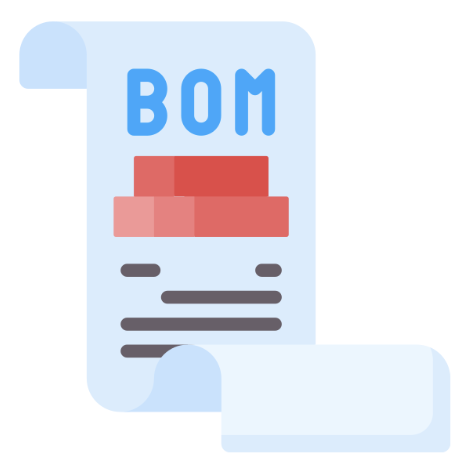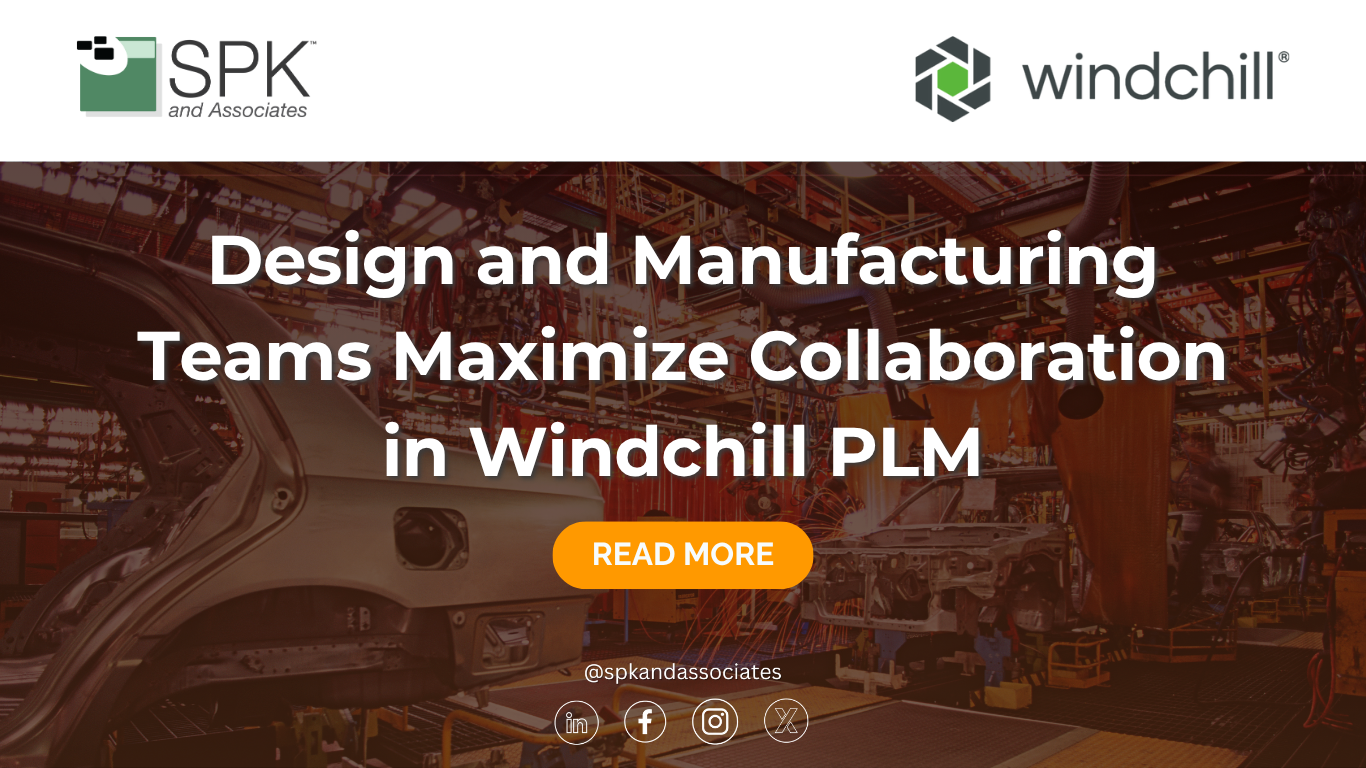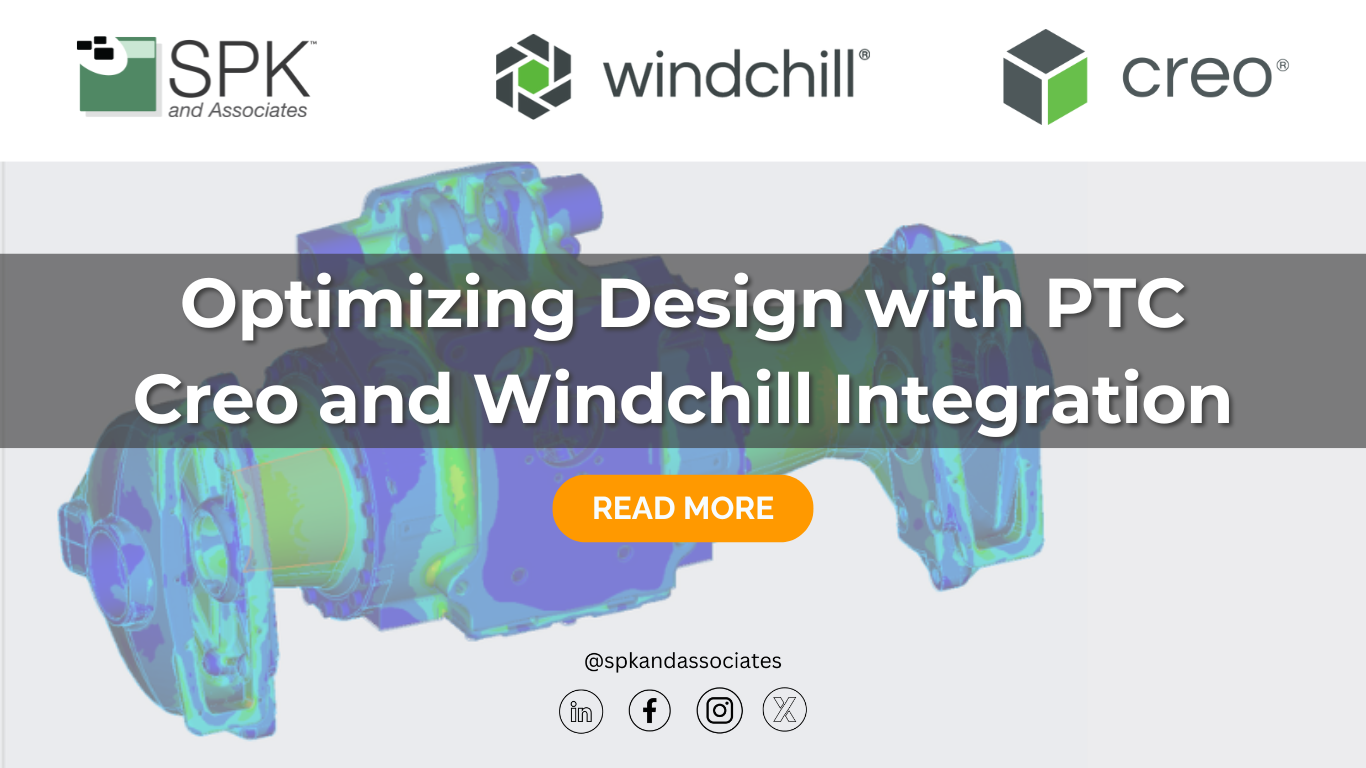Delivering high-quality products quickly and cost-effectively requires seamless collaboration between design and manufacturing teams. However, many organizations still operate in silos that lead to inefficiencies, delays, and costly rework. PTC Windchill, a leading Product Lifecycle Management (PLM) platform, empowers organizations to bridge the gap between engineering and manufacturing. In this blog, we’ll explore how Windchill enhances collaboration through integrated PLM and CAD capabilities. Discover how you can enhance design with PLM, unlocking workflow efficiencies and improving product quality.

Windchill PLM: Key Manufacturing Abilities
Windchill provides manufacturing engineering teams with a model-based, fully integrated platform. Its capabilities help organizations achieve operational excellence from the earliest design stages to factory execution. The following abilities are critical to design and manufacturing teams.

Manufacturing BOM Transformation
Windchill simplifies the creation and management of Manufacturing BOMs (MBOMs). It uses a graphical interface that leverages 3D design data, structured metadata, and traceable links between engineering and manufacturing BOMs.
Manufacturing Process Planning
Users can develop detailed process plans for assembly, repair, and inspection. These are version-controlled and tied to the product configuration, enabling synchronized updates when designs change upstream.
Creo Integration
Users can connect Creo to Windchill with Windchill’s PDMLink, allowing Creo users to have direct, secure access to Windchill-managed data. This includes 3D models, drawings, and technical documentation, all from within their CAD environment.
Work Instruction Authoring
Windchill allows users to dynamically generate visual and text-based work instructions for any product configuration. This ensures factory workers have accurate, up-to-date assembly guidance.
Manufacturing Process Verification and Simulation
With integrations to tools like ESI, IPS, and Rockwell Emulate3D, Windchill supports simulation and verification of manufacturing processes. This enables proactive design validation and optimization.
Manufacturing Resource Management
Manage the physical and human resources needed on the shop floor, such as tools, machines, and skilled labor, with constraints like cost and availability factored in.
ERP/MES Integration
Windchill publishes process plans and product data to ERP and MES systems to avoid duplication and ensure synchronization across enterprise platforms.

Quality Inspection with Control Characteristics
Control characteristics can be defined and linked to process steps. Combined with IoT data and statistical analysis, these support closed-loop quality assurance.
These core features provide the framework for enhancing design with PLM, allowing cross-functional teams to work in parallel rather than in sequence. This significantly reduces lead times and improves product quality.
Windchill PLM for Collaboration
By connecting engineering and manufacturing in a shared digital environment, Windchill enables several key outcomes:

- Faster Time to Market
Changes made during design are automatically visible to manufacturing teams. This parallel workflow shortens the development cycle and reduces the risk of late-stage surprises.
- Improved Product Quality
By maintaining associativity between design models and manufacturing deliverables, organizations reduce misconfigurations and ensure compliance with defined quality standards.
- Lower Production Costs
Engineers can make fact-based decisions earlier in the process. With visibility into plant capabilities, they design with manufacturability in mind. This helps avoid retooling or outsourcing costs.

- Greater Flexibility in Production
Windchill helps manufacturing engineers handle product variability and complex configurations more effectively. It supports agility in both make-to-stock and custom-order environments.
- Aligned and Informed Teams
With a common view of data and processes, collaboration across global teams and sites becomes seamless. Additionally, communication improves dramatically.
Ultimately, Windchill enables a closed-loop PLM approach, turning late-stage chaos into early-stage clarity. This empowers companies to deliver right, the first time.
PLM Best Practices in Action
The following examples show how you can enhance design with PLM, maximizing value through collaboration, standardization, and digital transformation.

Automotive
An automotive company implemented a closed-loop PLM system in Windchill to create a single source of truth across engineering and manufacturing. By unifying their processes and integrating tools like Creo and Vuforia, they enhanced collaboration. Additionally, this unification laid the groundwork for a fully 3D model-based enterprise. This resulted in improved quality, reduced costs, and faster time to market.
Electronics
An electronics company leveraged Windchill to standardize development processes, manage change, and extend PLM capabilities beyond PDM. Centralized control of engineering and manufacturing data enabled the team to confidently manage product configurations. Additionally, it helped them with the manufacturing process planning. Future phases aim to expand Windchill’s role into sales, procurement, and regulatory compliance.

Windchill PLM for Collaboration and Efficiency
PTC Windchill bridges the gap between product design and manufacturing. It ensures teams can collaborate effectively and respond to change with agility. With model-based engineering and connected process plans, organizations reduce errors, bringing high-quality products to market faster. Whether you’re launching a new product or optimizing an existing process, PLM is the foundation for scalable, synchronized success.
At SPK and Associates, we help engineering and manufacturing organizations implement and optimize Windchill to achieve these outcomes. If you’re ready to transform how your teams work together, contact us to learn how to unlock the full potential of your PLM strategy.








